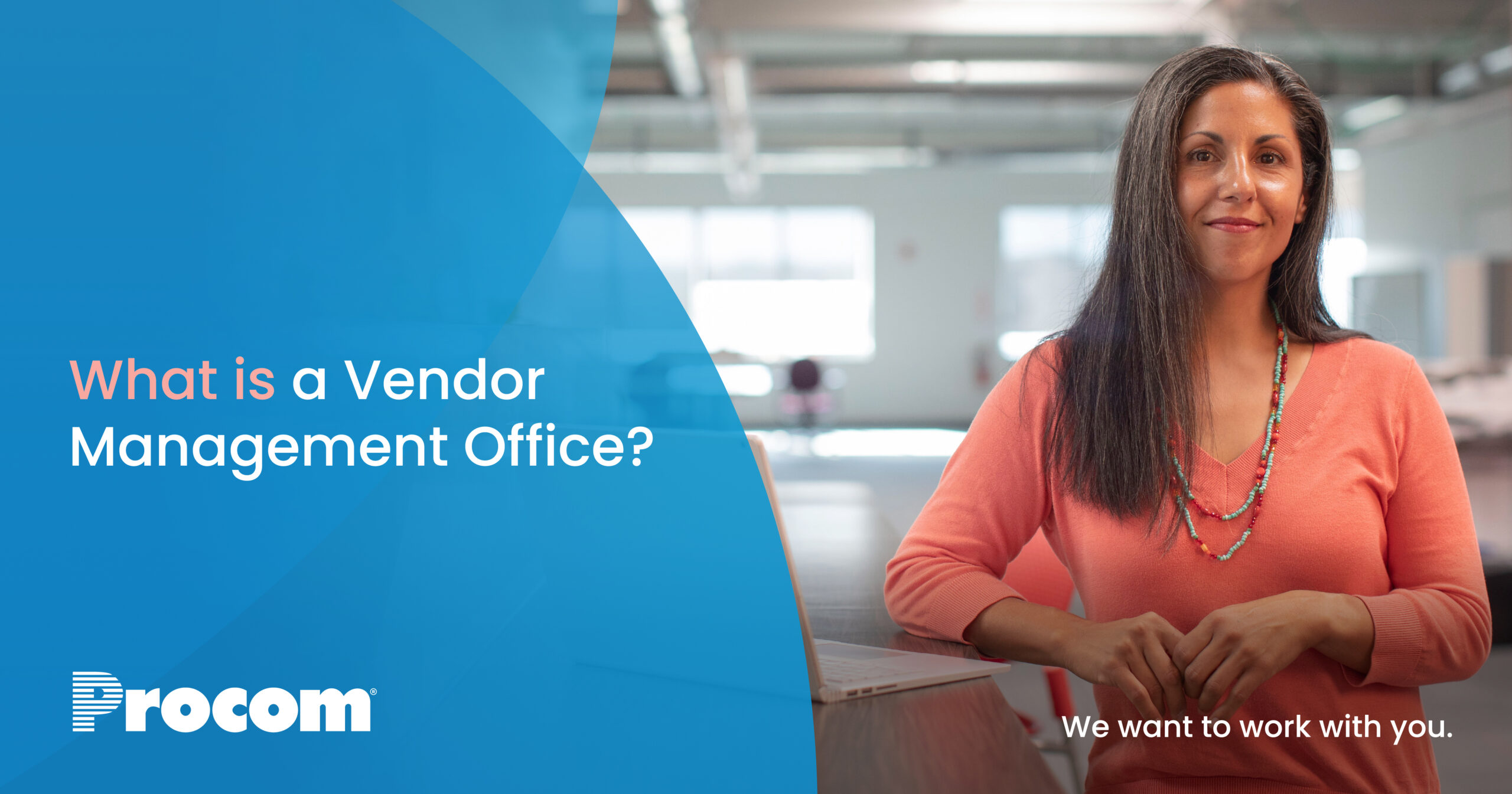A Vendor Management Office (VMO) is an internal business function within an organization established to evaluate and manage relationships with third party vendors, including IT staffing vendors and your contingent workforce. A successful Vendor Management Office will improve vendor performance, reduce or mitigate client risk and improve accuracy of vendor data.
Thriving enterprise organizations must typically manage hundreds of vendor contracts and millions or billions of dollars in spend – tasks that can often prove difficult and complex to many employers. To simplify and streamline their approach to vendor management and future proof their contingent workforce with the right technology, organizations are adopting more formalized vendor management programs.
Should these programs include a Vendor Management Office? And if so, how will your organization benefit?
If your organization is looking to mature its current vendor management program by establishing a formal Vendor Management Office, or you simply want more information to help decide if a VMO is right for your business, the insights below will help you make an informed decision:
Why do we need vendor management?
Effective vendor management allows organizations to track and manage pre-defined metrics throughout the duration of their contracts using technology called a Vendor Management System (VMS).
This allows employers to gain greater visibility into their vendor relationships and have more control over their vendor selections. A vendor management solution that integrates with a VMS can give employers confidence in the quality of services that are being delivered.
How can your VMS realize if vendors are meeting expectations and business goals?
Your VMS strategy must include Key Performance Indicators (KPIs) that are critical to measuring if your vendor management software is effective.
To evaluate a vendor, KPIs should be unique to your organization and your business goals. These KPIs should include quantitative and qualitative ways to measure program success.
What does a Vendor Management System do?
A Vendor Management System is a software application, typically cloud-based, that helps to facilitate the process of contingent worker procurement and contingent workforce management. A VMS will automate and streamline the sourcing, engaging, managing and payrolling of contingent workers sourced through an organization directly or by their Managed Services Provider (MSP).
Does your vendor management program need a Vendor Management Office?
Although the indicators for when an organization needs to implement a Vendor Management Office will vary, Forrester reports that 39 per cent of companies with at least 1,000 employees have a VMO, as do about half of companies with at least 5,000 employees.
The decision to establish a VMO will also depend on how much risk the organization is currently exposed to with its vendors and how committed its management is to not only establishing but also sustaining a disciplined approach to third party risk management.
What are the core functions of a Vendor Management Office?
Contract management
The Vendor Management Office is responsible for the contract terms and legal administrative duties related to contracts with the organization’s vendors. This includes contract negotiations, authorization, support, invoicing, purchase orders and overall general management of contract agreements with each vendor.
Financial management
The Vendor Management Office is responsible for managing total investment over time with each vendor. This involves tracking volume commitments, revenue rebates, recurring costs, final cost, initial cost, hard-and soft-dollar savings and financial commitments relating to each vendor engagement.
Relationship management
To build and maintain a mutually beneficial and long-term client/vendor relationship, the VMO is responsible for establishing the vendor strategy, managing any transitions, implementing any projects within the program and monitoring performances.
Performance management
Performance management will focus on similar concepts as financial management – this includes managing aspects such as vendor scorecards, dashboard rankings and KPIs.
Compliance management
Vendor risk is a threat to any business that engages third party suppliers. Compliance management means the VMO must also ensure vendors conduct business activities in accordance with the laws and standards that have been established in the form of Federal, State or Provincial guidelines. The VMO must also ensure each vendor remains within the framework of your organization’s principles, standards and procedures.
Governance management
The VMO is also responsible for reducing organizational risk stemming from increased awareness and visibility over the vendor management program. Ensuring controlled and enforced governance enables an organization to uncover hidden value, control costs, mitigate risks and drive business forward.
Value management
The VMO will take a strategic approach to discovering, optimizing and celebrating value with business partners. Value management recognizes that great achievements are rare and publicly celebrates the collective hard work that achieved the outcomes.
What roles are involved in a Vendor Management Office?
Establishing a framework for a high performing VMO will take time, resources and the right dedicated team. Whether the VMO team is comprised of a business unit or working together as needed cross-functionally, clear ownership of each role within the team must be established. These roles should include:
Vendor Manager
A Vendor Manager will evaluate vendors in order to identify areas for increased effectiveness. The Vendor Manager is responsible for ensuring quality and cost effective services.
Sourcing Consultant
A Sourcing Consultant will evaluate competitive vendor bids and assess proposed vendors. The Sourcing Consultant will focus on price as well as the proposed vendor’s capability to meet the organization’s needs.
Value Initiatives Project Manager
A Value Initiatives PM will take on research responsibilities and develop purchasing strategies in order to increase value from the relationship. The Value Initiatives PM will also develop exit strategies when required and identify replacement vendors.
Transactional Purchasing Manager
A Transactional Purchasing Manager is responsible for daily purchasing transactions and identifying ways to increase vendor ROI.
Contracts Administrator
A Contracts Administrator will assist with the RFP process and vendor contracts and contract negotiations. The contract administrator will also conduct vendor quarterly business reviews.
Vendor Director
A Vendor Director is responsible for devising vendor strategy and setting program metrics. The Vendor Director should report to C-level management to assure vendors that the VMO has executive support.
Vendor Auditor
A Vendor Auditor is responsible for ensuring regulatory compliance and performance of vendor partners. The vendor auditor will also maintain a vendor risk scorecard and perform performance reviews for the team.
Vendor Analyst
A Vendor Analyst is responsible for the management of Vendor SLAs and the Vendor Management System. The Vendor Analyst will also assist the VMO team in analyzing vendor data to meet cost saving objectives as well as perform invoice tracking against purchase orders.
Is a VMO right for you?
Is your organization managing hundreds of vendor contracts and millions of dollars in spend? Developing a strategic and dedicated VMO program will help cut costs and increase the value of vendor relationships.
Before you can prepare for a successful VMS implementation and integration into your current IT ecosystem, the first step in vendor management is discovering whether VMS technology will help drive your contingent workforce forward.
Download our free Case Study to learn how Procom’s VMS technology helped one client partner save on contingent workforce costs and more.






